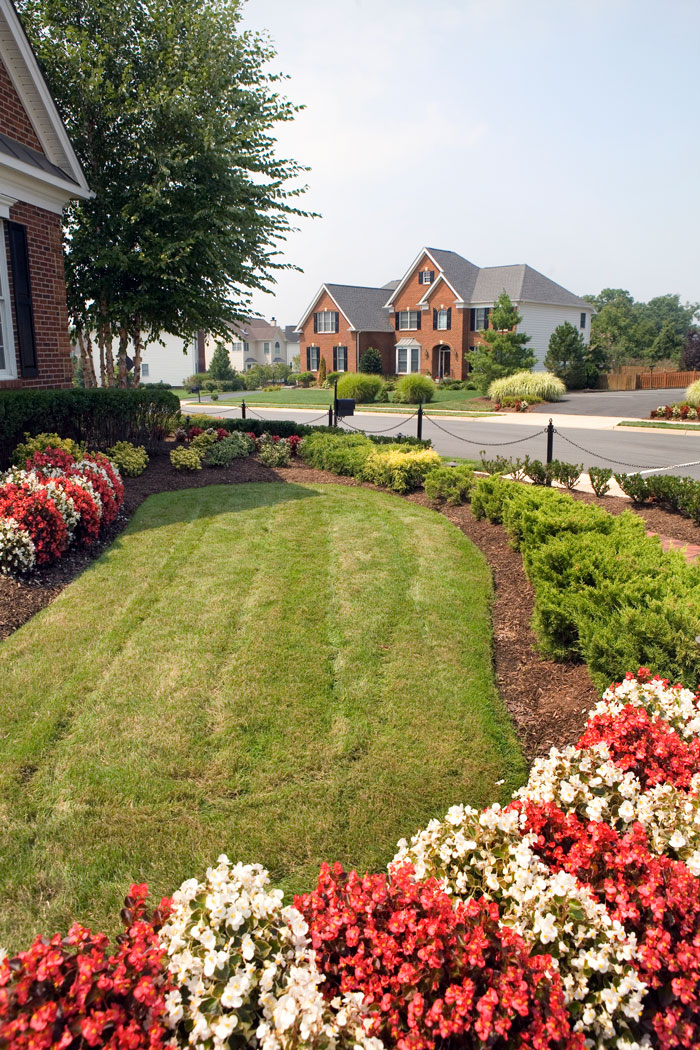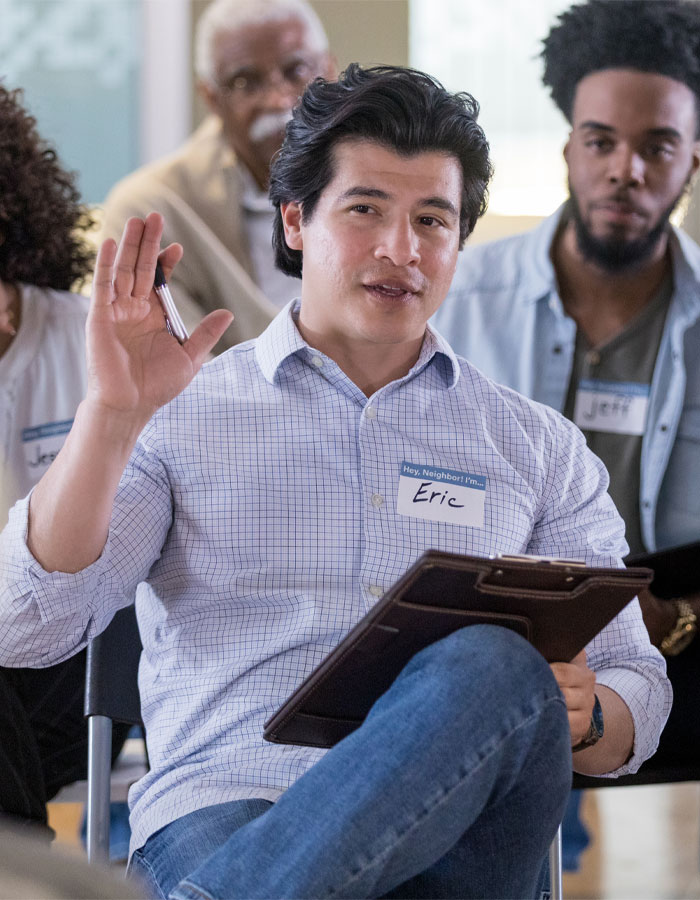The “common interest” community model of land development is now prevalent in the national capital region (Washington metro area), where condominiums, cooperatives and townhomes provide dense housing, particularly in the urban core.
According to industry data, over 2,050,000 Virginians live in 804,400 homes located in in more than 9,100 HOAs, condominiums, and cooperatives statewide. Approximately 1,062,000 Marylanders live in 406,100 homes in more than 7,100 associations. In Washington, D.C., approximately 106,000 residents live in 49,700 homes located in more than 2,000 associations, mostly condominiums and cooperatives. Most of these persons rely on an association to maintain infrastructure necessary to access and use their homes or businesses. HOAs impose assessments on their members while enforcing rules governing the improvement or use of the property. Condominiums, HOAs and cooperatives impact the lifestyle, financial burden, and investment outlook of many who may be unaware of this before purchasing. Volunteer directors drawn from the lot owners govern such communities.

By law, the recorded declaration and bylaws function as a “contract” defining the rights and obligations among owners and boards. Many boards and committees include leaders lacking the knowledge and skills necessary to fulfill the duties laid out in the covenants and bylaws. Many directors, even the well-meaning ones, do not understand their duties or the scope of their discretion. Many are civic-minded people engaged in helping others, others are motivated by self-interest or resentment towards certain neighbors. Mandatory associations rely on professional managers and specialized law firms to collect assessments and enforce rules against the owners. These managers and attorneys work at the pleasure of, and direction by the board majority. Because every property is unique, and the needs and desires of the owners are different, actions taken by the association’s directors and agents are often contrary to the interests of an owner. Sometimes a problem isn’t instigated or perpetuated by the HOA itself. Often neighbors’ aggression causes legal problems, and the association’s meetings are the “venue” for the parties’ dispute. Unfortunately, even where the recorded instruments enshrine an owner’s rights or limit the association’s authority, frequently a community association’s actions (or inactions) prejudice individual property rights. It’s not enough for families to have legal rights that exist on paper. People need help exercising rights protecting their personal safety, health, liberty, investments and financial security. Because state laws provide ways to help HOAs and condominiums to collect money from the owners, the associations have financial resources to work with experienced managers, accountants, lawyers and even lobbyists to organize and advance their interests. Of course, if the board majority supports an owner in a particular situation, it’s easier to get things done to resolve problems. However, many good citizens often find themselves at odds with a property management system that does not respect their rights. This is all done in the name of the majority, while many members may actually be disengaged, unaware, or afraid. On June 24, 2021, a condominium building in Surfside, Florida partially collapsed, causing a tragic loss of 99 human lives. Since news of this horrific tragedy became known, many condominium boards have become more pro-active about large scale renovation projects and collection of additional assessments against unit owners. Controversy regarding the necessity of a variety of projects and assessments have increased in condominiums, causing many unit owners to lose their sense of control over their home ownership and personal budget.

After years of working in other law firms, I became convinced that individual landowners in community associations needed a law practice that they could turn to that wasn’t focused on representing HOA boards, and wasn’t a general law practice lacking an emphasis. I became interested in this area after working on civil litigation, real estate, business law, and construction matters. Many reoccurring questions in community associations law have answers that can help individuals and families, but aren’t neatly organized in a code book or published treatise. Many applicable doctrines are buried in obscure reported case opinions or require interpretation of seemingly conflicting statutes or documents. When the use and enjoyment of one’s property is at stake, it’s not fair to expect an attorney who does not practice this area of law to spot the essential issues or navigate unfamiliar territory. The HOAs and condominiums have experienced community association attorneys helping them. In 2015, I decided to start building a law practice that, among other things, provide this service to lot and unit owners. I work with individuals, families and small businesses who are serious about protecting their own rights by solving specific property problems related to HOAs and condominiums. Many people who can hire an attorney to help them with their HOA problem are not aware that there are provisions in the governing instruments, statutory protections, common law doctrines, or judicial procedures that can help. Cowherd PLC works with a variety of surveyors, building code experts, engineers, title researchers, real estate agents and other professionals who are in a position to work with individuals, families or small business so that as things progress the client has the peace of mind that a team is working for them.
When owners finds themselves in seemingly intractable disputes with a neighbor, manager, board or committee where a significant property right, investment, or financial obligation are at stake, their initial focus in talking with people is to find out if they have a meritorious case, or what legal options and alternatives may exist that have not yet been fully considered. In other instances, the dispute has developed momentum such that a hearing, lawsuit or arbitration is imminent or actually pending, requiring a response or further action. These are situations where Cowherd PLC’s experience, education and skills can provide great value to a landowner who needs the right attorney for them at that moment. Many lot or unit owners have worked hard their whole life, making careful decisions regarding the making the property purchase, managing finances, and trying to maintain the property and maximize its use, while showing respect towards other members of their community. In such instances, its important to know if one is actually being treated fairly by their neighbors or boards and what next steps may be available to protect and advance one’s own rights. Cowherd PLC’s representation of landowners or long-term tenants includes the following:
- Owner Advocacy in Disputed Matters with Homeowners or Condominium Association
- Defense of Fines for Covenant or Rule Violations
- Does Not Accept Representation of Association Boards or Managers
- Navigation of Contractor Projects Subject to HOA Architectural Review
- Assistance with Support or Opposition to Architectural Approval Applications
- Disputes over Insurance Coverage and Deductibles for Property Damage
- Counseling Buyers or Sellers Regarding Disclosure Packets or Resale Certificates
- Representation of Owner or Tenant in Termination of Condominium
- Representation of Owners in Disputed Covenant Amendments
- Protection of Lot Owner Interests During Transfer of Developer Control
- Disputes Over the Owner’s Right to Lease a Condominium or Cooperative Unit
- Federal and State Fair Housing Laws
- Unit Owner Challenges to Special or Additional Assessments for Disputed Infrastructure Projects
- Counseling of HOA Directors at Odds with Policies of the Board Majority
- Disputed Placement of Video Cameras
- Controversies Over Maintenance and Use of Ponds, Lakes and Water Access
- Faulty Conversions of Unincorporated Associations into Nonstock Corporations
- Contests of Wrongful Assessment Liens & Foreclosures
- Disputed Claims, Fines or Special Assessments for Water Damage
- Controversies Regarding Bylaws and Policies that Regulate Pets and Animals
- Use, Encroachment, Maintenance, and Renovation of Limited Common Elements
- Disputed Parking Policies and Vehicle Restrictions
- Negotiations Involving “Overlapping Jurisdiction” of Master and Sub- Associations

Service Area
Fairfax County, Fairfax City, Falls Church, Arlington County, Alexandria, Prince William County, Manassas, Loudoun County, Montgomery County, Frederick County, Howard County, Prince George’s County, and Washington, D.C.
- Virginia, Maryland & Washington D.C.
